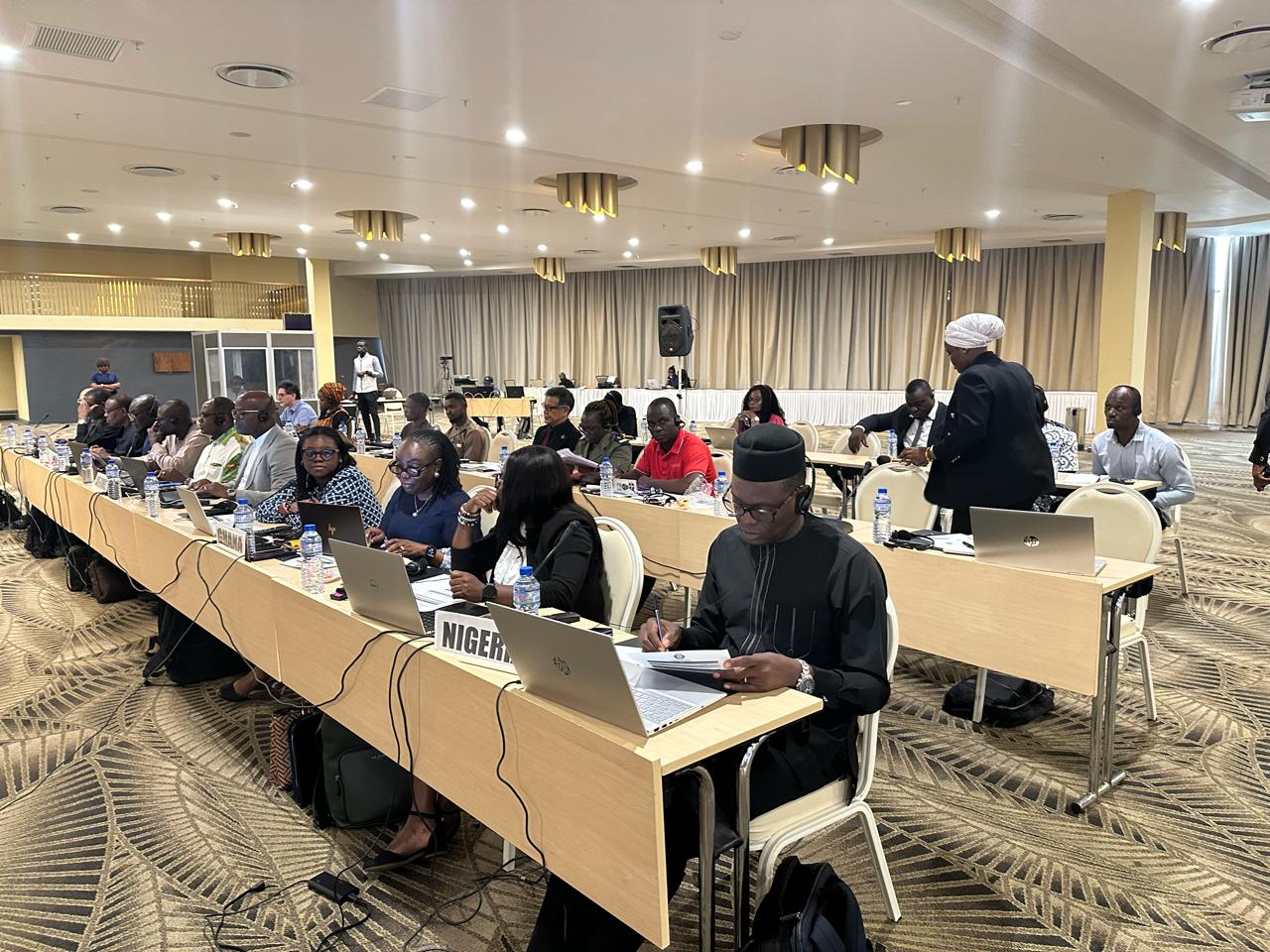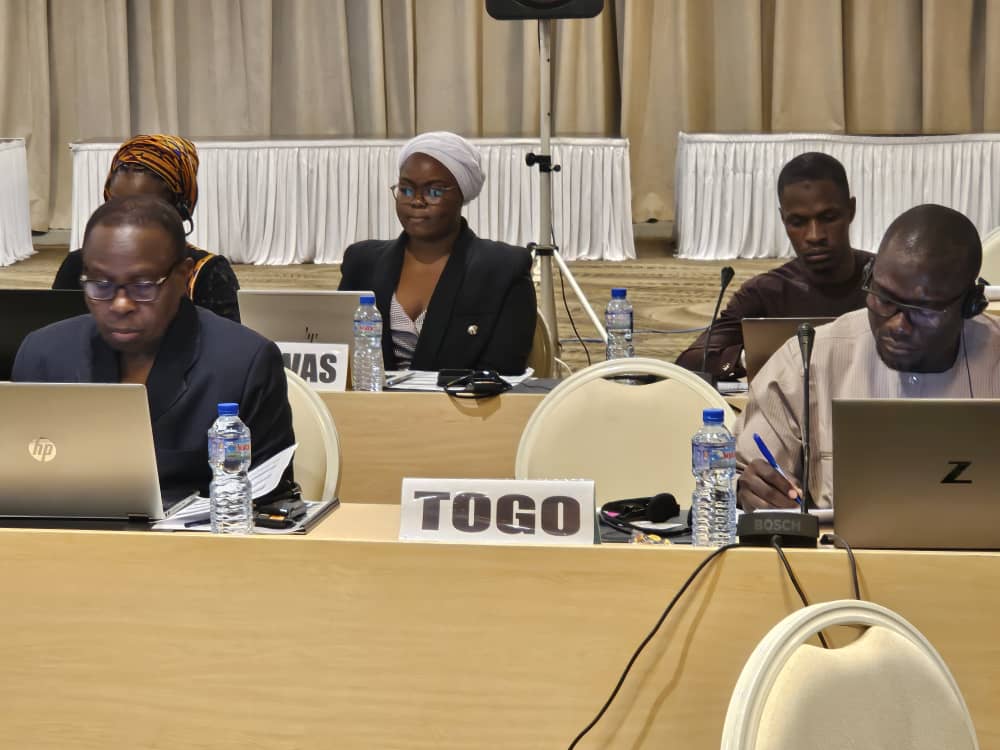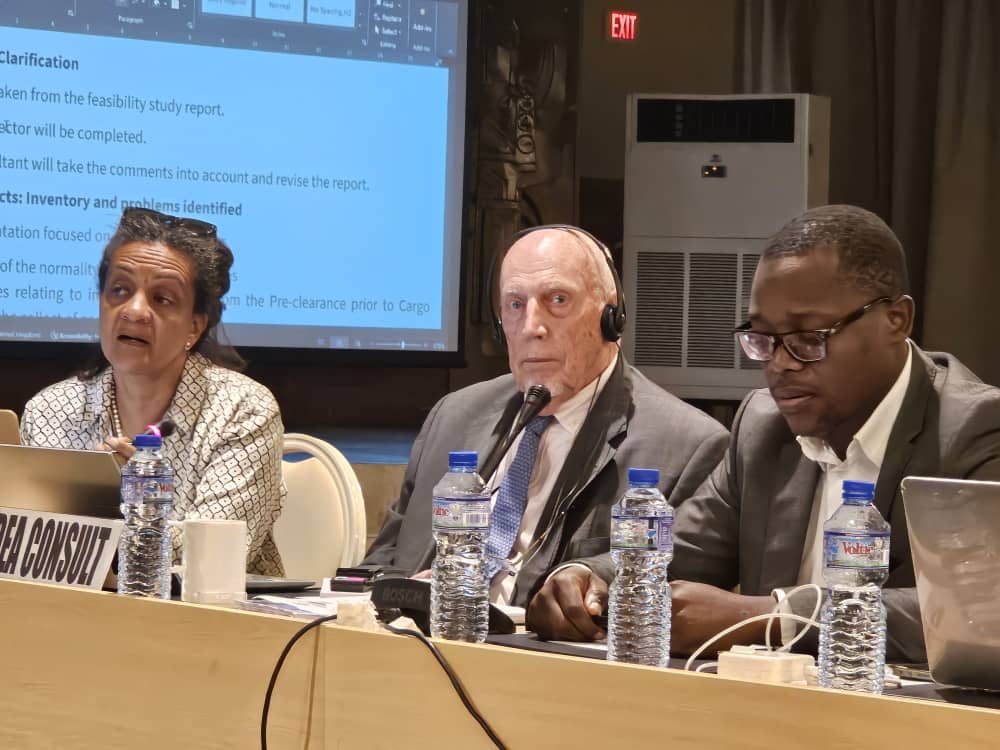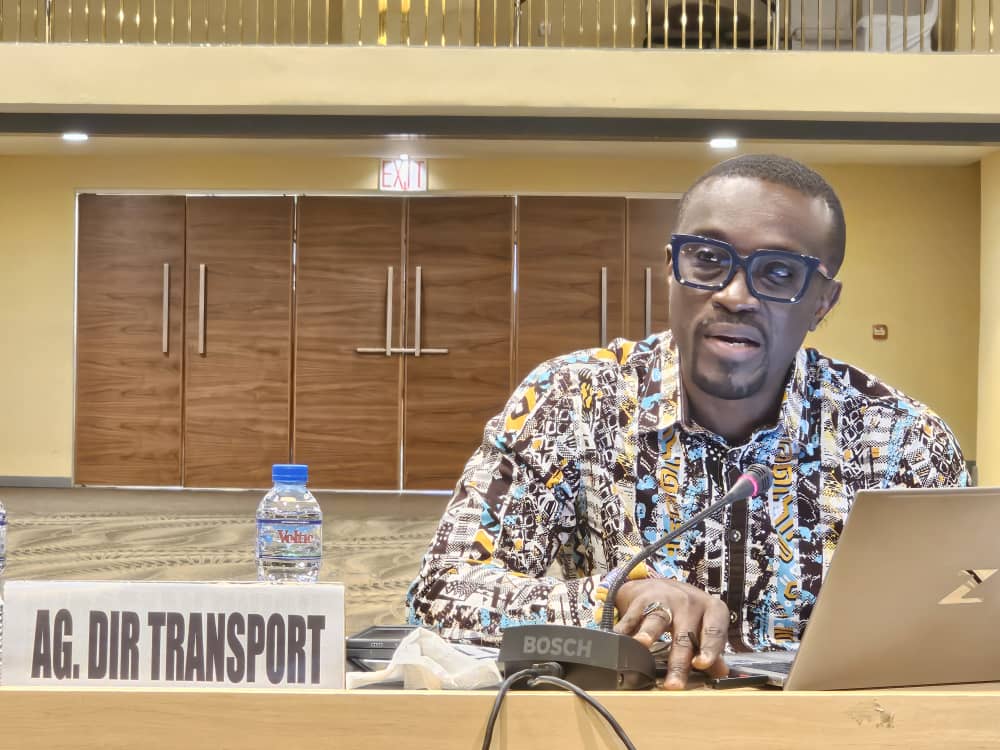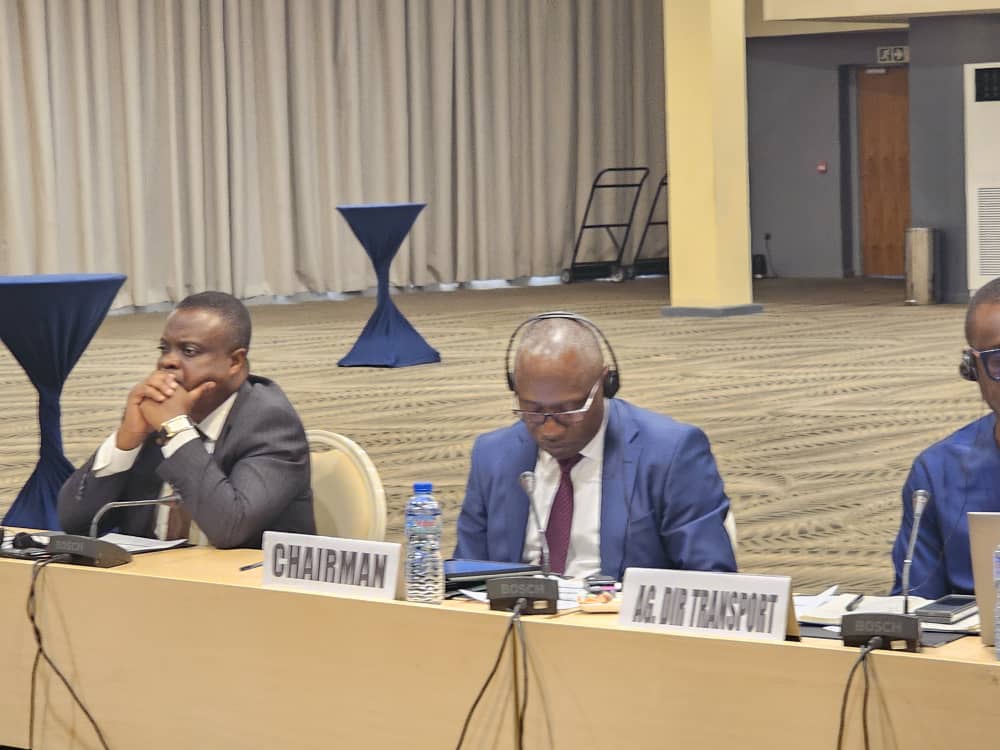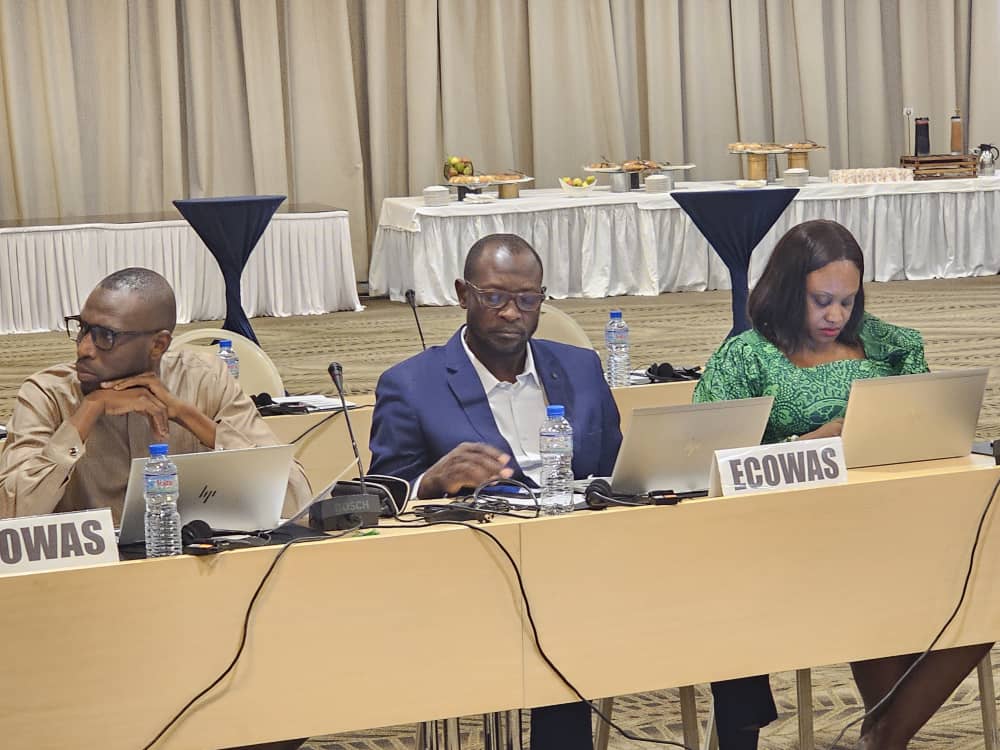ECOWAS Commission Concludes 3 Day Technical Review of Interim Report for Trade and Transport Facilitation Study of The Abidjan-Lagos Corridor Highway Project
10 Jul, 2024Lome, 29th June, 2024 – The ECOWAS Commission has concluded a three-day technical review of a draft Interim report for the Trade and Transport Facilitation Study of the Abidjan-Lagos Corridor Highway Development Project, which is expected to culminate in a framework that will allow the corridor highway to be operated under a single customs regime with no borders, no stopping of travellers or traders at borders to stamp passports, etc. Also, the framework will have corridor wide automated third-party insurance scheme “ECOWAS Brown Card” for cross border vehicle.
The three (3)- day workshop which was chaired by the Director of Highway Planning and Development of the Federal Ministry of Works of Nigeria, Eng. Ibi Terna, brought together representatives of Member States from various sectors including Roads and Highways, Immigration, Free Movement, Customs, Trade and other international stakeholder institutions and Development partners who are interested in free movement of goods, services, persons and transport, aims to agree on a framework that will guide the movement of trade, persons, vehicles and services along the new Abidjan-Lagos Corridor Highway without creating unjustified impediments.
Acting Director of Transport for ECOWAS, Mr. Chris Appiah, said “the corridor Treaty signed by the Heads of State and Government of the five Corridor Countries conveyed their vision to transform the corridor into an economic development corridor. This means the corridor highway will not only facilitate transportation but help unearth major economic activities in manufacturing, industrialization, tourism, agriculture, etc, around the corridor and boost cross border trade. To agree on the perfect framework to enable this happen, the Commission brought together experts from all five (5) Corridor Member Countries, Africa Development Bank, the Directorates of Trade, Customs, immigration, and free movement of the ECOWAS Commission as well as other Development Partners to make sure that all the recommendations the consultant will be making to ensure free movement of goods, services, persons and transport are practical and align with international best practices.”
The Director of Free Movement of Persons and Migration for ECOWAS, Mr. Albert Siaw-Boateng emphasized the importance of the Corridor Highway project in ensuring free movement of persons, goods, services and trade within ECOWAS and in particular the corridor member countries. He said his directorate is undertaking a number of measures including what he described as the “Interstate Passenger” scheme where pre-cleared travellers will be able to travel the whole corridor non-stop and the proposed “ECOVISA” for travellers from outside the ECOWAS Region to be able to travel to all 15 Member States without the need for country specific visas.
“We are doing these in preparation of the completion of the Abidjan-Lagos Corridor Highway to enhance Free Movement of persons, goods, facilitate trade services and reduce harassments along the corridor….The completion of the corridor highway project will help us freely implement what we call the Regional Mechanism and also by that time, we would have also completed the ECOVISA space and ensure that not only community citizens, but migrants from 3rd countries are also able to engage in businesses across borders.” Mr. Albert Siaw-Boateng revealed.
The Executive Director of ECOWAS Brown Card, Mr. Kwasi Winfred Dodzih said the Brown Card is committed to working with the Transport and Free Movement Directorate of ECOWAS Commission to ensure that there is in existence a harmonised scheme of vehicle insurance to protect lives and properties moving along the Abidjan-Lagos Corridor Highway. “The Brown card is an important tool, and if we assess the rate at which claims on accidents are happening on the Abidjan-Lagos and other regional corridors, you realise that there is a serious need for an insurance scheme to be put in place to protect properties and lives of our citizens.” He opined.
Participants at the workshop drawn from both public and private institutions with direct interest in facilitating trade and transport movement along the corridor including officials from ECOWAS Commission, Ministries and Departments of the five (5) Corridor Member States, Partners and the ECOWAS Brown Card, interrogated the interim study by the consultants, and made inputs regarding the current situations of trade facilitations on the Abidjan-Lagos Corridor.
The Technical Studies for this regional flagship infrastructure development project is being financed by the African Development Bank (AfDB), with contributions from the European Union and the ECOWAS Commission. The Corridor Countries also contributed $1.4m each to the technical studies and project preparation activities.




